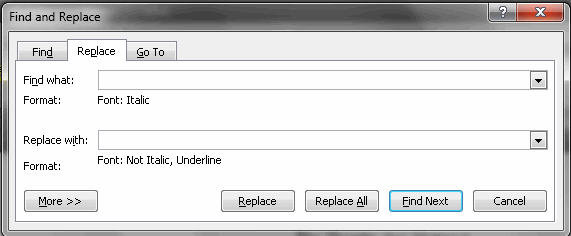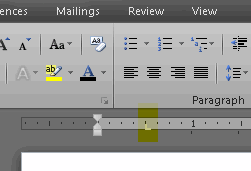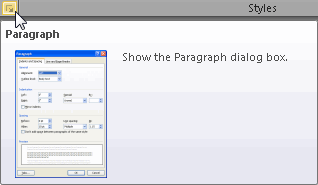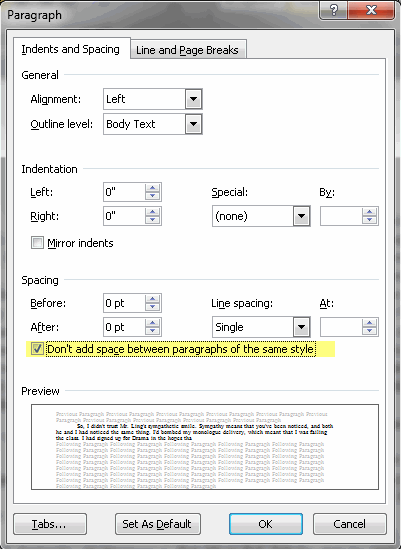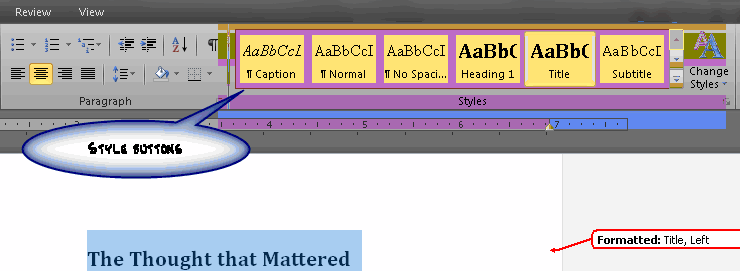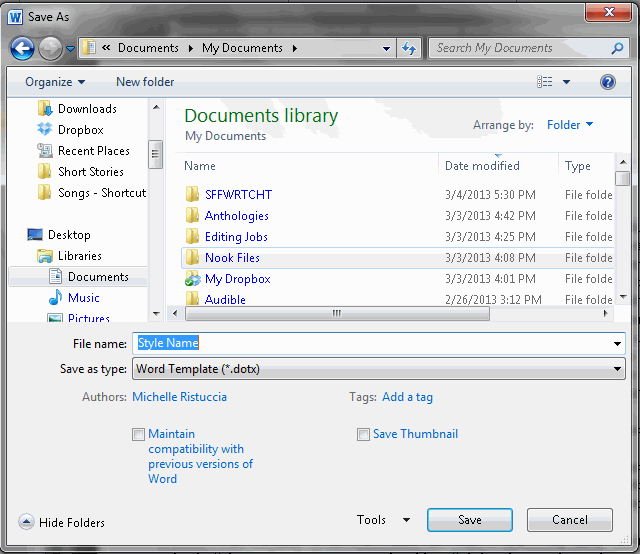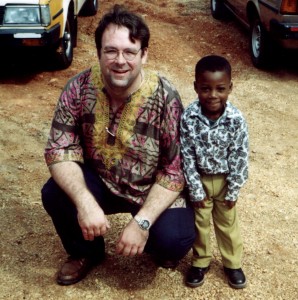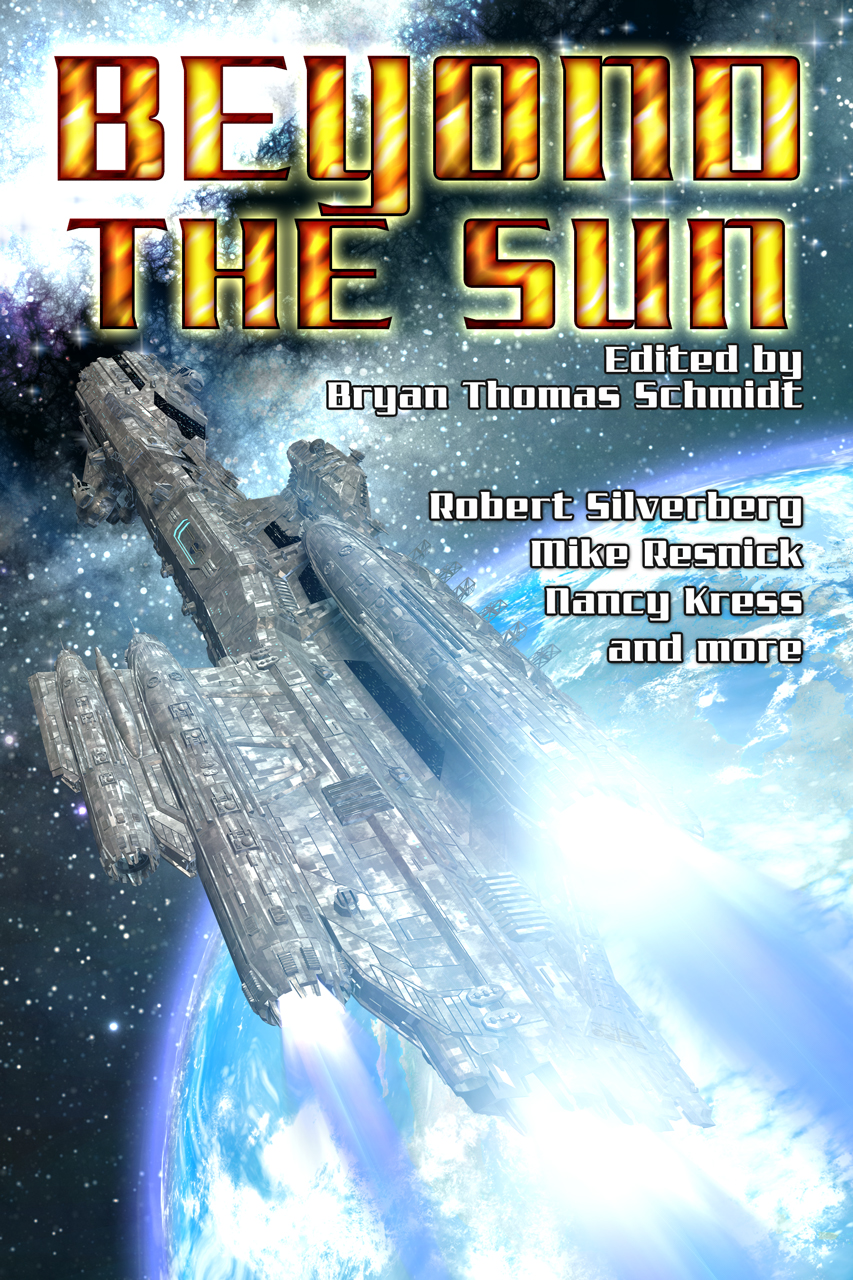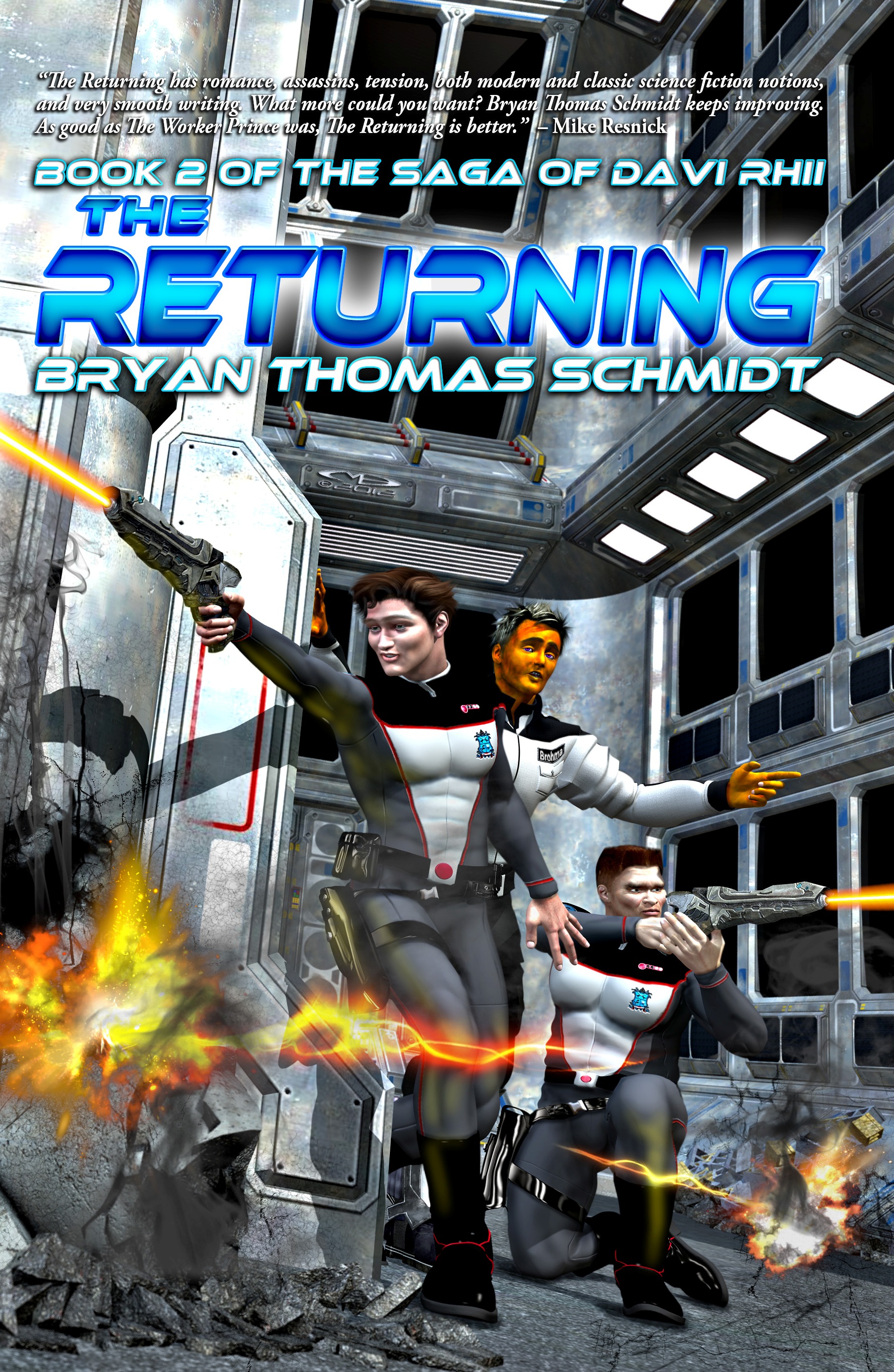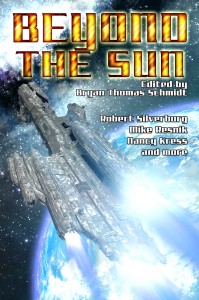 Okay, this week’s write tip is going to be a bit different. I want you to watch this video first before you read the rest of this post. And you need to watch the whole thing to really get what I’m saying here. Watch it. It’s not cheesy. It’s surprisingly touching and funny. And you won’t know what I mean if you don’t make it through the first two minutes. So you have your assignment. Watch and then we’ll get to the tip.
Okay, this week’s write tip is going to be a bit different. I want you to watch this video first before you read the rest of this post. And you need to watch the whole thing to really get what I’m saying here. Watch it. It’s not cheesy. It’s surprisingly touching and funny. And you won’t know what I mean if you don’t make it through the first two minutes. So you have your assignment. Watch and then we’ll get to the tip.
In case you have trouble with the embedded video in your browser, find it on You Tube here: http://www.youtube.com/watch?v=tcVXCeWk0PE
Now. Showing this to people I’ve gotten several varied reactions.
1) Oh, I would never make a fool out of myself like that.
2) Best dad ever!
3) That’s cute!
4) How creative and fun!
5) I couldn’t do that.
My own reaction: this is a man who loves his daughter enough to demonstrate it and celebrate it.
The typical father-daughter dance at weddings is symbolic. We all know why. It’s the passing of the torch of responsibility for the care of the daughter from father to husband. It signifies a letting go, a goodbye, an acknowledgement of leaving home and that everything has changed.
But not really.
What do I mean?
He could have just danced with his daughter. “Butterfly Kisses” is without a doubt one of the best songs written by a father for his daughter ever. It evokes memories for almost anyone who hears it. F0rget about the mention of Jesus and that it’s from a Christian singer. What makes this song work is that it paints pictures of experiences almost every father and daughter have shared and recognize instantly. And it does so over a moving melody with touching arrangement and score.
It’s the perfect tribute for a memorable moment. And in and of itself, I’m sure that it will be the song by which singer Bob Carlisle is forever remembered. So at any wedding, and it’s sung at thousands every year these days, it makes for the perfect accompaniment to this symbolic moment.
But something happens here. Something unexpected. Something that knocks us out of that moment and into another. It could have been cheesy. It could have been ridiculous. But it’s not. It’s done so well and with such good spirits that instead it is perfect. It absolutely makes for one of the most memorable and meaningful father-daughter dances I have ever seen. Because what I see here is a father who is remembering being silly with his baby girl and celebrating that by doing it one more time. He’s saying, “this dance is not for you or what you think, audience. This is for me and my girl. And it’s a moment we’ll never forget.”
It gives me chills. It’s a celebration of a father’s true love for his daughter, of the joy they find in each other. Of the magic that exists in a parent-child relationship. It’s one last chance to marvel and wonder at what they’ve found together in each other. And it’s a fearless example of self-sacrifice.
This father in no way looks like the type of guy who would just shake his booty like he does here. Now, I don’t know him. He could be a trained pro dancer for all I know. (I doubt it. He wasn’t slick enough, but it doesn’t matter.) The point is that instead of letting a moment be entirely melancholy just because it’s fitting, he decided to turn it into a celebration of the joy of fatherhood with his daughter.
Honestly, that’s love.
And to me, it’s a great example of nuances and subtext.
As an editor, I’ve seen a lot of beginning writers who write transparently. They don’t know how to impart subtext intentionally. Occasionally it happens, but it’s all an accident. It’s a lesson I admit to having to learn and continuing to learn myself. Because for a story and a world and a character to be real, we as readers need to recognize them. And real people live lives full of subtext and nuances in everything they do.
The simple act of a father dancing with his daughter is just an example. You could assume the motive is transparent. It’s tradition. It’s something you’re expected to do. He doesn’t want to disappoint his daughter or family. It’s that simple.
And if all they had done was dance to “Butterfly Kisses,” that might be all we see here. But that’s not what happens.
Instead, they break it out into something quite different and unexpected and delightful. And from their expressions, their enthusiasm, we can see that it’s about so much more. Missed it? Watch the video again. Seriously.
These are not people who have rehearsed so much that they look like robots. They clearly rehearsed. They match their dance moves too closely for that not to have been the case. But it’s clear they are enjoying it. It’s not done rotely or robotically with no emotion. They look comfortable, relaxed and happy doing it. This is from the heart.
As a result, for me, it’s magic. And that’s the kind of magic we as writers need to earn to work into our stories to make them jump off the page and come alive.
You character hugs his wife goodbye before heading off to battle. It’s what husbands do. What soldiers do. But what else could be behind it? Maybe their marriage has grown cold and routine, and they have to work harder to recapture the passion they had when they first fell in love. Maybe they don’t touch like they used to, and the husband wants to remind the wife one more time that she matters to him, that she’s in his heart.
Or maybe the husband is remembering all the previous times they’ve said goodbye, not knowing if they’d see each other again. Maybe it reminds them of the friends, other married couples, who played out the same goodbye only the warrior never came home.
All kinds of things can be going on.
Our job as writers is to figure out what those things are for these characters and find ways to evoke it through their actions, their thoughts and their words, without necessarily spelling it out directly. It takes subtlety. And it takes good set up. Little hints and moments before and after that multiply together to tell us what’s going on in that moment. But it’s these nuances and the subtext that results which add a depth and poignancy, when done well, that brings both characters and world a level of realism that makes it pop. And sells it to your readers as s0mething they can imagine really happening.
So yes, it’s a wedding video. But I hope now you can see why I’m saying this is so much more. Because I think it is. And our stories need lots of moments with so much more, too. At least, if we want to elevate them beyond the ordinary to the memorable and special, that is. And I know that’s what I’m shooting for. What about you?
For what it’s worth…
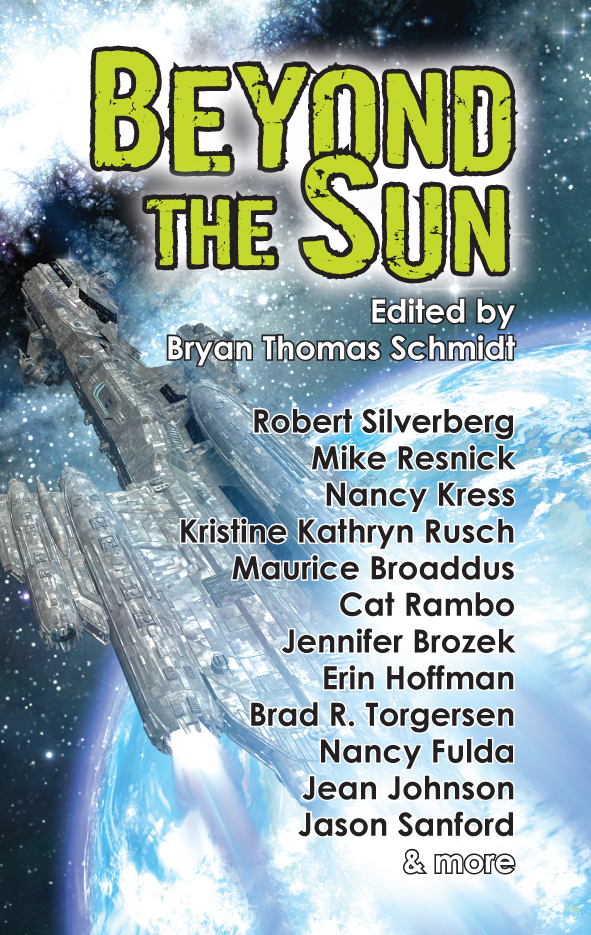 Bryan Thomas Schmidt is an author and editor of adult and children’s speculative fiction including the novels The Worker Prince and The Returning, and the children’s books 102 More Hilarious Dinosaur Jokes For Kids (ebook only) and Abraham Lincoln: Dinosaur Hunter- Land Of Legends. His debut novel, The Worker Prince (2011) received Honorable Mention on Barnes & Noble Book Club’s Year’s Best Science Fiction Releases for 2011. His short stories have appeared in magazines, anthologies and online. He edited the anthology Space Battles: Full Throttle Space Tales #6 (Flying Pen Press, 2012) and is working on Beyond The Sun (Fairwood, July 2013), Raygun Chronicles: Space Opera For a New Age (Every Day Publishing, November 2013) and Shattered Shields with co-editor Jennifer Brozek (Baen, 2014). He also edits Blue Shift Magazine and hosts #sffwrtcht (Science Fiction & Fantasy Writer’s Chat) Wednesdays at 9 pm ET on Twitter and can be found via Twitter as @BryanThomasS, on his website at www.bryanthomasschmidt.net or Facebook at http://www.facebook.com/bryanthomass?ref=hl.
Bryan Thomas Schmidt is an author and editor of adult and children’s speculative fiction including the novels The Worker Prince and The Returning, and the children’s books 102 More Hilarious Dinosaur Jokes For Kids (ebook only) and Abraham Lincoln: Dinosaur Hunter- Land Of Legends. His debut novel, The Worker Prince (2011) received Honorable Mention on Barnes & Noble Book Club’s Year’s Best Science Fiction Releases for 2011. His short stories have appeared in magazines, anthologies and online. He edited the anthology Space Battles: Full Throttle Space Tales #6 (Flying Pen Press, 2012) and is working on Beyond The Sun (Fairwood, July 2013), Raygun Chronicles: Space Opera For a New Age (Every Day Publishing, November 2013) and Shattered Shields with co-editor Jennifer Brozek (Baen, 2014). He also edits Blue Shift Magazine and hosts #sffwrtcht (Science Fiction & Fantasy Writer’s Chat) Wednesdays at 9 pm ET on Twitter and can be found via Twitter as @BryanThomasS, on his website at www.bryanthomasschmidt.net or Facebook at http://www.facebook.com/bryanthomass?ref=hl.

